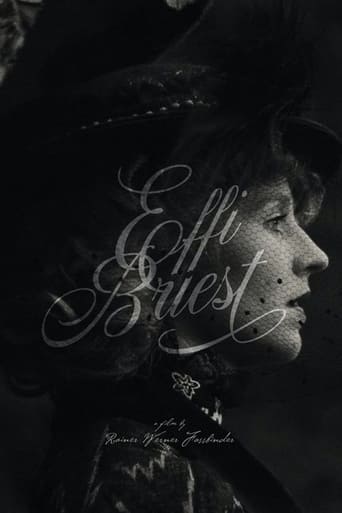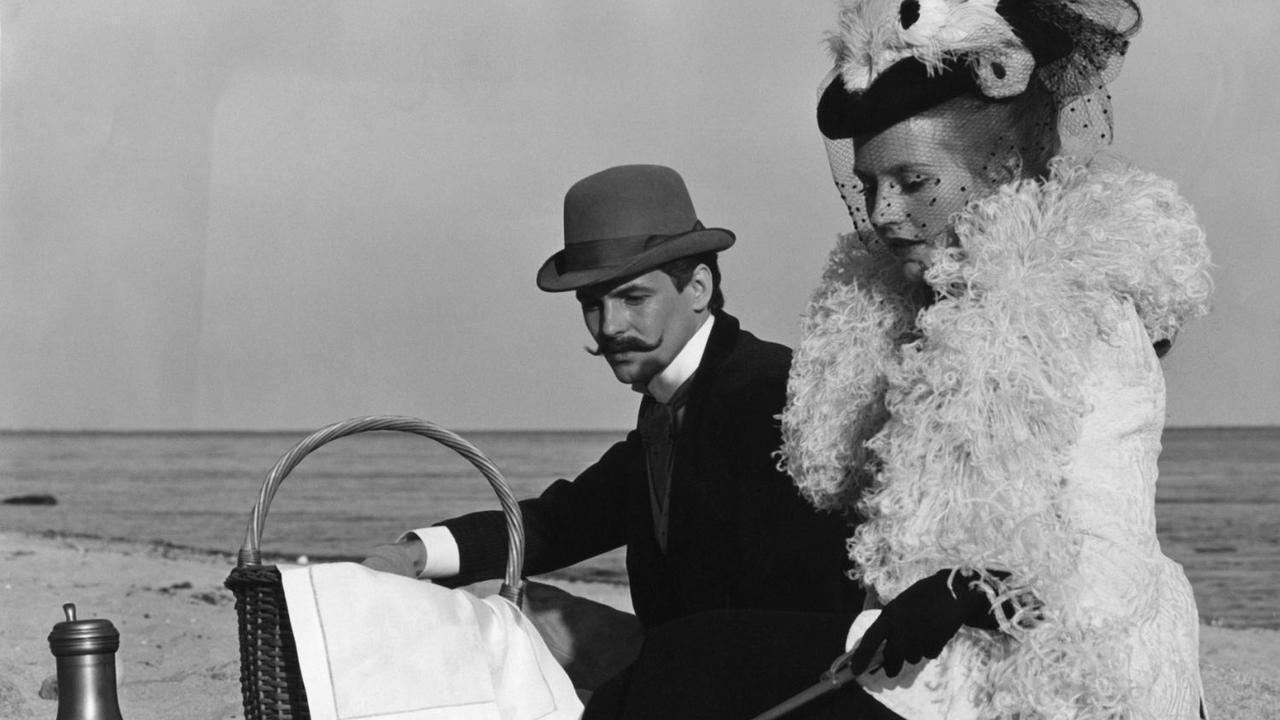j-m-w
I read Effi Briest, I know the story. But i couldn't see the story in this movie. Characters just appear for one or two scenes without any introduction so you just don't know who is who in this movie.Characters who play a huge role in the book and have a rich background just appear for one or two scenes.The scenes don't deliver the actual plot at all. Suddenly its 30 years later and no mention at all, i just know, because i read the book. And this is what this film feels like: an movie you watch while reading the book. As a standalone movie its just not working at all because it doesn't deliver story. Its just random scenes from the book. Maybe the scenes which carry the essence of the book, but only as an addition to reading the book.Then there are very weird things happening in this movie, which doesn't make sense at all. e.g. the narrator starts narrating while the characters are still talking scenes of characters just standing for minutes without dialog weird text inserts which often repeat what characters just said or random things, unrelatedAnd the characters have no movements in their faces the whole movie. They just carry the same look all the time. except of Effi, who smiles from time to time but that's all. No one ever is mad, happy, angry, fearful, greedy, sad or even in love. And the book is about emotions. Its very confusing to see absolutely no emotions in this movie.
Ben Parker
Effie is a young maiden who marries a Baron and talks about ghosts a lot. Effie Briest is in black and white, and its by Fassbinder. Beyond that, I just didn't like it. The characters are cold and distant, they move like statues and speak slowly as in a Dreyer film. The narrative techniques create a literacy atmosphere, fading to white, having brief title cards, and a narrator (voiced by Fassbinder) who interferes long after when he was needed, keeping us at a distance. Its a nice looking film, gorgeous in black and white, often like a painting of 18th Century characters standing on beaches or in drawing rooms. It doesn't remind me of Sirk specifically, aside from the few shots in mirrors and the overly composed shots. There's no histrionics, and hardly any music; melo in melodrama means music. The scenes on the beach where the narrator talks for minutes while we watch the characters from a mid-shot are either meant to be funny or they don't work at all, I can't decide. After watching some Ingmar Bergman films, the massive lack of humanity in this Fassbinder film makes it feel totally empty to me.
schizolage
Fassbinder's Effie Briest is a tremendous film. it is not an 'adaptation' of the book. it is much more complicated than that. the title as it appears in the film is:Fontane // Effie Briest // oderthen followed by a long quotation in the next frame. the word 'oder' (or) works as a hinge holding the first title onto its meaning (erklarung). the whole of Fontane's book is framed within the title. and the film is a meditation on the limits of enframement. mirrors are everywhere, doubling and re-doubling the images and framings. to anyone that thinks the camera-work is sub par was obviously not paying attention. the execution of some of these scenes is unsurpassed by anyone.the film consists of several different layers. there are inter titles, narration (direct quotations from Fontane), and then dialog. this would be the three orders of representation. then there are the layers of sense. as an example take the figure of Effie Briest. she is never a unified subject that we can refer to as an individual. she is the contested site of a number of different forces in a number of fields of discourse. the most obvious evidence of this is the contestation of the name: Effie. Effie Briest? Effie Von Instetten? the film is about this change. and the possibilities of refusal. what would it be to have ones own name and not the name of an other? she cannot. or as her father (who is always called by the signifier 'Briest') continually says 'Das ist ein zu weites Feld'. he pronounces the limits of thought in its foreclosure. it is always a command and always ends the dialog: there is nothing left to say on this subject because we CANNOT think THAT (the repressed idea, which reveals itself as thinkable through the fathers disavowal of its thinkability).
nekanderson881
Exquisite black-and-white photography, gorgeous costumes, stunning landscapes, and actors photographed in mirrors and through laced-curtains are the highlights of this emotionally distant film. It is true, however, that the leading actress has her cathartic scene, but it comes late in the film. Too late to really make one care about the spoiled, rich young lady. But this is Fassbinder, and Fassbinder is always watchable, even at his most pretentious. One joy of this film is the presence of Irm Hermann, who can do more with one glare (she doesn't need dialogue as "The Bitter Tears of Petra Von Kant" proved for all time) then any actor I can think of. Schygulla and the other actors are mostly wooden. The beauty of the scene with the starkly handsome Lommel as the rich major and Schygulla picnicking at the beach makes one forgive the shortcomings of the film.


 AD
AD


